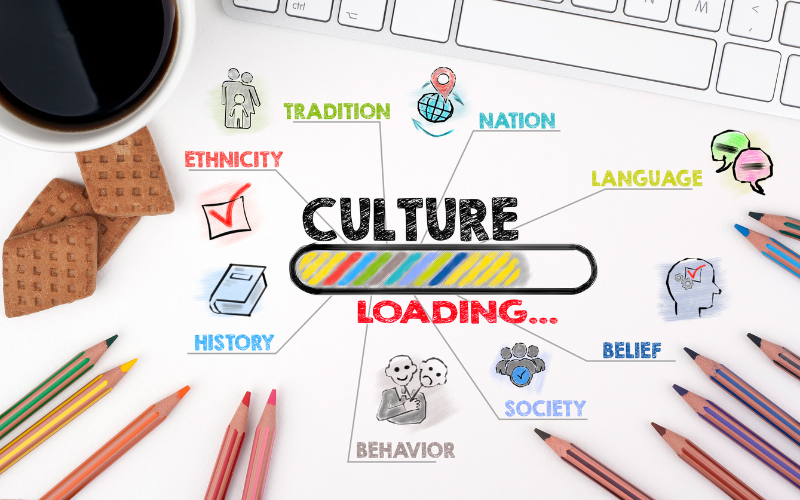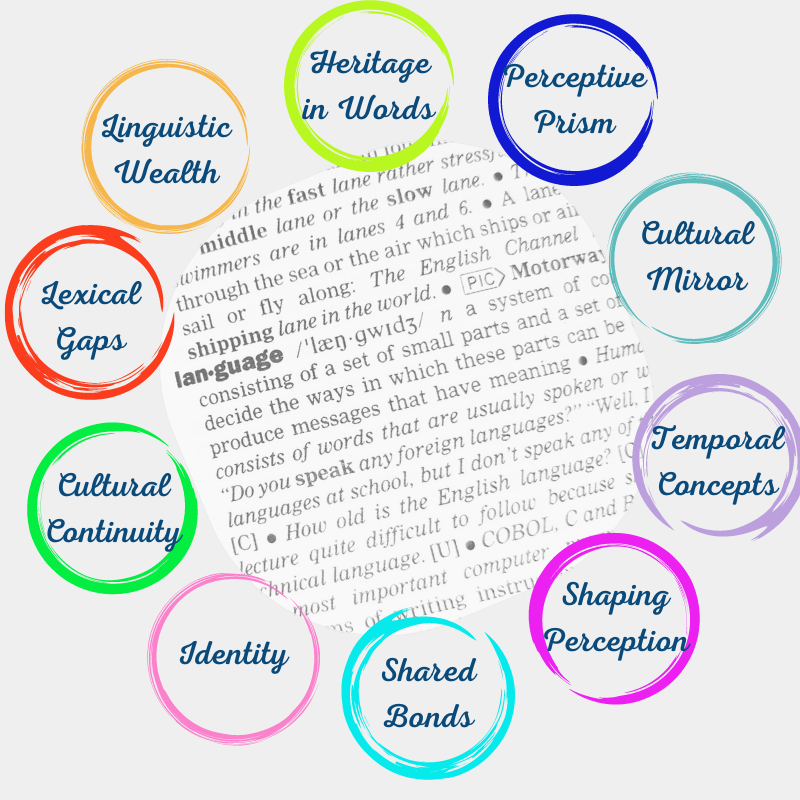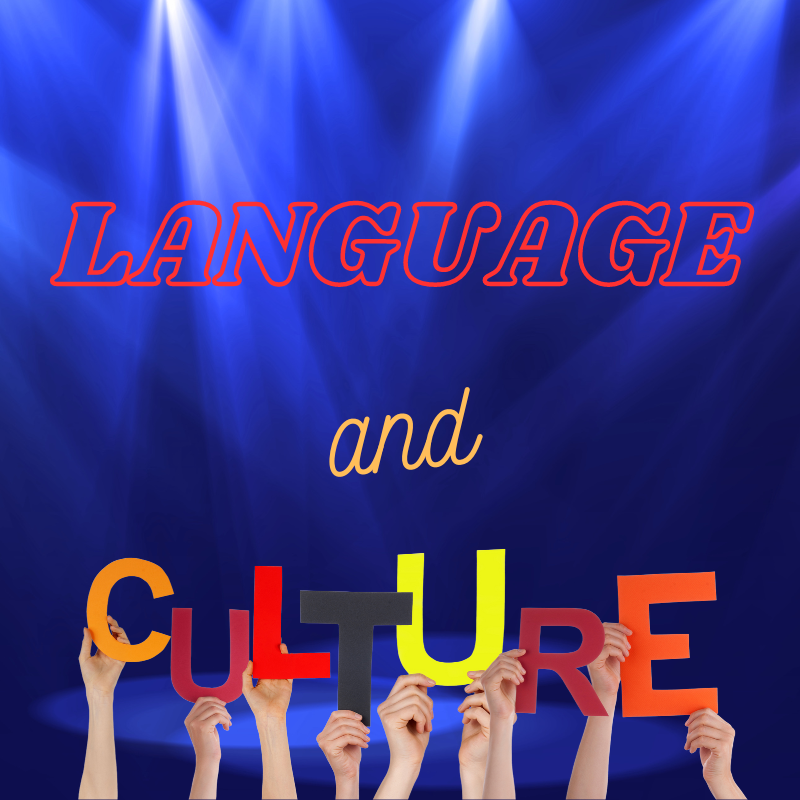Is there a Connection Between Language and Culture? The answer is yes, there is a strong connection between language and culture. Language is not only a means of communication, but it also reflects the values, beliefs, and traditions of a particular culture. In this blog post, we delve into the profound connection between language and culture, highlighting how language shapes our thoughts, perceptions, and interactions, and how cultural nuances impact our language choices. Join us on this captivating journey as we explore the fascinating interplay between language and culture.

Language as a Cultural Mirror
Language serves as a powerful tool for expressing and shaping cultural identity. It acts as a mirror, reflecting the complexities and nuances of a culture. The unique words, phrases, and expressions within a language carry the collective knowledge, history, and experiences of its speakers. Our native language connects us to our roots, heritage, and a sense of belonging. It is through language that we express our cultural identity, sharing stories, folklore, and shared experiences with others.
By speaking a particular language, we align ourselves with a specific cultural community and embrace its values and traditions. When we study a language, we not only preserve cultural values, customs, and social norms, but also pass them on to future generations. Exploring a language allows us to gain a deeper understanding of the cultural wealth it encompasses.
Each language offers a distinct cultural filter, molding our perception of reality. The concepts and words embedded within a language reflect the cultural values, beliefs, and experiences of its speakers. For example, some languages may have specific terms to describe emotions that are not directly translatable into other languages. This linguistic uniqueness influences how individuals from different language backgrounds understand and express emotions, bringing forth a rich tapestry of cultural diversity.
Language as Cultural Identity
Language plays a crucial role in shaping and expressing cultural identity. Our native language connects us to our roots and heritage. Through language, we inherit not only words and grammar but also the collective wisdom, stories, and customs of our ancestors. It is through the richness of our language that we keep our cultural traditions alive, passing them down from one generation to the next. Language serves as a vessel that carries the essence of our cultural identity, connecting us to our roots and fostering a sense of continuity.
Language acts as a powerful catalyst for creating a sense of belonging within a cultural community. When we engage in conversations with others who share our language, we establish a deep connection that transcends words. Speaking our native language allows us to connect with others who understand our unique cultural references, humor, and expressions. Through this shared linguistic bond, we cultivate a profound sense of belonging, fostering social cohesion and a supportive network of individuals who share our cultural identity. By speaking a particular language, we align ourselves with a specific cultural community and embrace its values and traditions.

Language’s Influence on Perception
Different languages offer unique perspectives and worldviews due to their inherent structures and vocabularies. The concepts and words available in a language shape how speakers perceive and interpret the world around them. For instance, Languages may have lexical gaps, which are concepts or ideas that exist in one language but lack a direct equivalent in another.
This phenomenon, known as linguistic relativity, suggests that the words available in a language shape our thoughts and experiences. For instance, languages may have nuanced terms to describe natural phenomena, such as snow, colors, or specific animal species, reflecting the importance of these elements within their respective cultures. As a result, speakers of different languages develop distinct perspectives on the world based on their linguistic repertoire.
Languages also influence how we perceive and conceptualize time. Some languages have specific grammatical structures or vocabulary to describe temporal concepts, such as the past, present, and future. These linguistic variations can shape the way speakers from different language backgrounds think about and plan for the future, impacting their decision-making processes and orientation towards time. Language acts as a lens through which we view and make sense of the world.
Language as a Bridge
Language serves as a bridge, enabling cross-cultural understanding and fostering connections between people from diverse backgrounds. Language proficiency goes beyond mere communication; it nurtures empathy and understanding. When we engage in language learning, we gain insights into the values, customs, and intricacies of different cultures. By immersing ourselves in a language, we can better understand the unique perspectives, histories, and aspirations of the communities that speak it. This understanding fosters appreciation for cultural diversity, promoting empathy and respect for others.
Learning a new language opens doors to different cultures, broadening our horizons and promoting empathy and appreciation for cultural diversity. Through language, we can engage in meaningful conversations, share experiences, and build meaningful relationships, transcending cultural boundaries. By learning a new language, we gain access to literature, films, music, and other cultural artifacts that offer unique insights into a society’s history, traditions, and artistic expressions. This exposure to diverse perspectives enriches our own worldview, encouraging us to embrace the beauty of cultural differences and find common ground with people from all walks of life.
Scientists have long observed that the brain of a bilingual person exhibits distinct characteristics compared to that of a monolingual individual. The ability to speak multiple languages offers remarkable advantages to the brain. It is possible for adults to replicate the remarkable “sponge effect” that young learners often possess. While it is true that young minds have a natural propensity for absorbing information quickly, adults can tap into their own potential to replicate this effect.
Bilingualism engages various cognitive processes, such as enhanced attention, improved problem-solving skills, and heightened executive function. The constant exercise of switching between languages and inhibiting one language while using the other strengthens neural connections and promotes overall brain health. The bilingual brain becomes more flexible, adaptable, and efficient, showcasing the incredible benefits of being bilingual.
Conclusion
The intricate relationship between language and culture is undeniable. Language is not merely a tool for communication; it is a profound reflection of our cultural heritage, identity, and values. It shapes our thoughts, influences our perceptions, and acts as a bridge that connects people from different cultures. By recognizing and appreciating the interplay between language and culture, we gain a deeper understanding of the world, fostering mutual respect and enriching our language learning journey.





